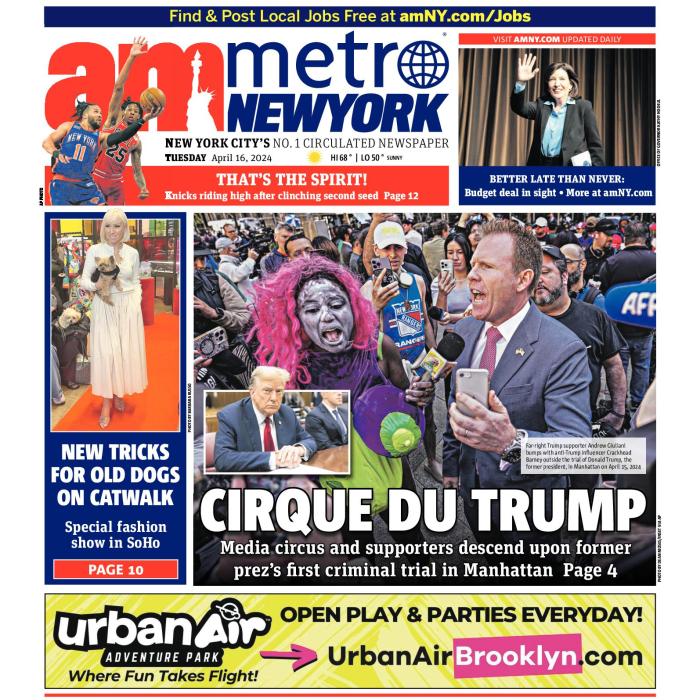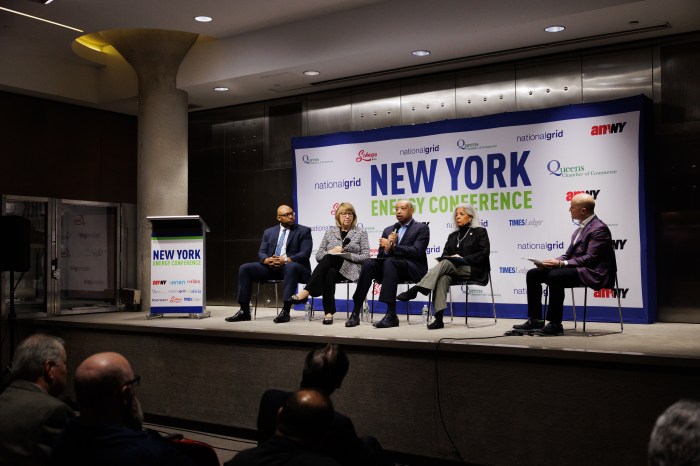Her 20s may have been nuts, but comedian Whitney Cummings’ 30s have ushered in a new cast of therapists and psychological stability that, as any New Yorker with a weekly (okay, twice-weekly) shrink session knows, can still be very, very funny.
Cummings’ memoir, “I’m Fine … And Other Lies” (Oct. 3, $27), covers her path to mental wellness, all with the flagrant humor for which the comic and “Two Broke Girls” creator is known.
Cummings discusses writing her first book, overcoming psychological setbacks and what she loves about New York.
Why write a book now?
It turns out I may not be a narcissist after all, because when I thought about writing a book, I thought: All I do is make mistakes, I should be reading books, not writing books.
But at the end of my 20s I went on an “Eat, Pray, Love” tour of therapists to stop being crazy — crazy is not cute in your 30s — because I needed help. I learned that I had this condition called codependency. I didn’t know that was a condition, but it’s defined as being unable to tolerate the discomfort of others, and it was making me do crazy things and suffer way more than is necessary. My inner monologue would say things to me that if anyone else said, I would call the police.
I wrote a Lenny Letter about this and it felt like a weird, self-indulgent diary industry but people started coming up to me on the street crying and thanking me for writing it. There was an amazing, overwhelming response to my being vulnerable about all this stuff I thought I was supposed to hide and pretend I didn’t have — addiction, eating disorders and body dysmorphia. I decided to write the book I wish would have been available to me when I was younger.
How is writing a book different than writing standup?
Writing a book is like a disaster whereas writing standup is more of like a nightmare. It’s so hard. No one prepared me for that. I pictured all these writers romantically in a cottage by the beach. And then I remembered most great authors were mentally ill and committed suicide. Especially with what I decided to write about — all my embarrassments and mental health challenges — having to think about them all day everyday was so exhausting and dark.
What is your writing process?
I developed an online shopping addiction. Every time I sat down to write I would spend $300 so that would inspire me to work harder because I had to write the book in order to afford my Amazon.com bill. Writing the book is emotionally draining, whereas standup has more levity and is about jokes. This is a comedy book but the material is bleaker than what I talk about onstage. These are stories that I’d never be able to make eye contact with while telling them — they’re humiliating!
Will your book make it into your set?
I’m still kind of in shock this is getting published. It’s like publishing your diary. I think these stories may be better received with you reading it alone. I still have a lot of shame around some of these stories.
What books did you read for research?
I tried to read everything but also nothing. When I read other comedians’ memoirs, I would think that because they talked about something, I shouldn’t talk about it. But every experience is so specific and different. There can never be too many voices or too much truth. I read a lot of Brené Brown on vulnerability and taking emotional risks. I needed that boost of courage.
Where do you look forward to going when you’re in NYC?
Oh my God, I am such a dork. Maybe this is a very L.A. thing to say, but when I come to New York I get very excited about Juice Press. We don’t have Juice Press in LA. In New York, I’m always running around and it’s so hard to sit down and have a real meal, but they have these shakes that are like a meal. I’ll get a bunch of them for the entire day so I can eat when I’m moving. This is pretty embarrassing but I also love Gourmet Garage. I have a place in TriBeCa now and I’ll eat there three times a day. That’s my spot.














